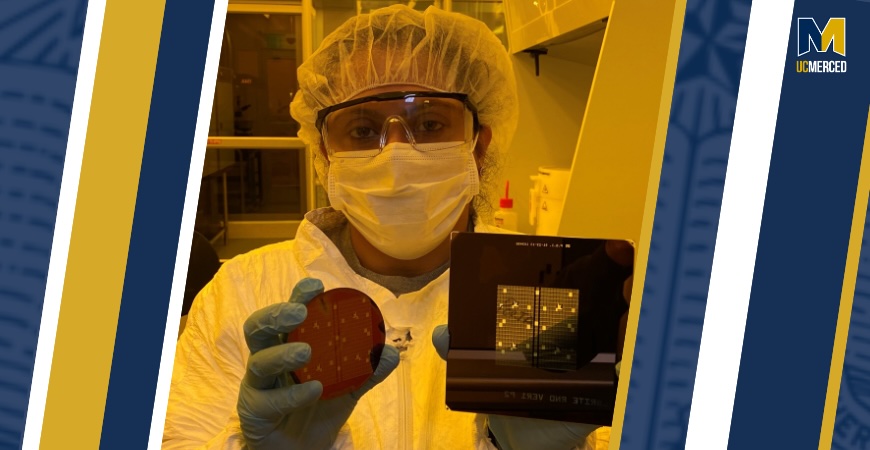
A new instrument that can fabricate extremely small features and devices could have a very big impact on several STEM programs at UC Merced.
Parveen Kumar of the university's Office of Research and Economic Development leads a team that secured a grant from the Army Research Office, the Office of Naval Research and the Air Force Office of Scientific Research to buy a semi-automatic mask aligner/nanoimprint lithography module.
The nanoimprint lithography and semi-auto mask aligner are integrated into one instrument but function independently of one another, Kumar said. They are used to design nano/micron-size features and devices.
Kumar explained that if you're aiming to create a biosensor or sensor platform using small-scale materials such as nanowires or 2D materials such as nanosheets, which have unique electrical properties, a mask aligner is essential for preparing electrodes on these tiny structures.
The instrument has implications in a variety of fields, including bioengineering, materials science and engineering, mechanical engineering and physics.
The university has an older version of the instrument, but it was manufactured in the 1990s and its functionality is limited. The new mask aligner and nanoimprint lithography module will be a major improvement over what researchers have been using, Kumar said.
Co-principal investigators have several projects planned for the instrument. In microfluidic research labs, photolithography masks are primarily used to create microfluidic molds or to pattern electrodes on substrates.
Physics Professor Bin Liu's lab aims to investigate and identify the universal roles played by the geometries and symmetries in cell-microstructure interaction. Chemical and materials engineering Professor Kara McCloskey said her lab is looking forward to using the device for developing its multicellular lab-on-chip device. Mechanical engineering Professor Mehmet Baykara will use the equipment to fabricate a proof-of-principle structurally superlubric, or frictionless, device.
This equipment will help more than 15 other researchers at UC Merced in a variety of fields, such as sensitive environmental sensors, advanced electronics materials, quantum technology, catalysts, microbial behavior, porous structures, and energy and bio-inspired materials. These research projects have diverse applications across scientific disciplines.
Kumar said he expects the mask aligner/nanoimprint module to arrive on campus in the next few months.




 Public Information Officer
Public Information Officer

